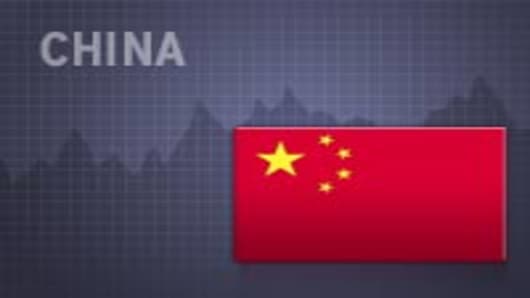A reading over 50 indicates an expansion of activity, while one below 50 suggests contraction.
All sub-indices fell, except that for stocks of finished goods.
Zhang Liqun, an economist with the Development Research Centre, a think-tank that reports to China's cabinet, said the rise in inventories and an easing of input price pressure pointed to a softening economy.
The official PMI was typically weak in May, but the trend needed careful monitoring, Zhang said.
"The change in demand is beginning to curb industrial growth," he said in a commentary released by the logistics federation, which compiles the index on behalf of the National Bureau of Statistics.
The survey of managers found growing complaints about rising prices, problems with raw materials and transport bottlenecks, but fewer companies complained about their cash flow in May.
Also on Sunday, the People's Daily newspaper, the mouthpiece of the ruling Communist Party, played down the economic consequences of last month's Sichuan earthquake.
The impact on the immediate areas will be serious, but they form a small part of the national economy.
As a result, the trend of rapid economic development will remain intact, the paper quoted a National Bureau of Statistics official as saying.
With areas devastated by the quake suffering energy shortages, the cabinet has ordered the coal-producing provinces of Guizhou, Shaanxi and Ningxia to step up deliveries, the official Xinhua news agency reported.
It said the May 12 disaster had knocked out a considerable number of hydroelectric power stations in southwestern China.
Thermal power stations would have to make up the difference during the reconstruction period, generating even more demand for coal.
To that end, a cabinet circular cited by Xinhua urged coal-producing provinces to boost output and reopen small mines that had been shut on safety grounds.


